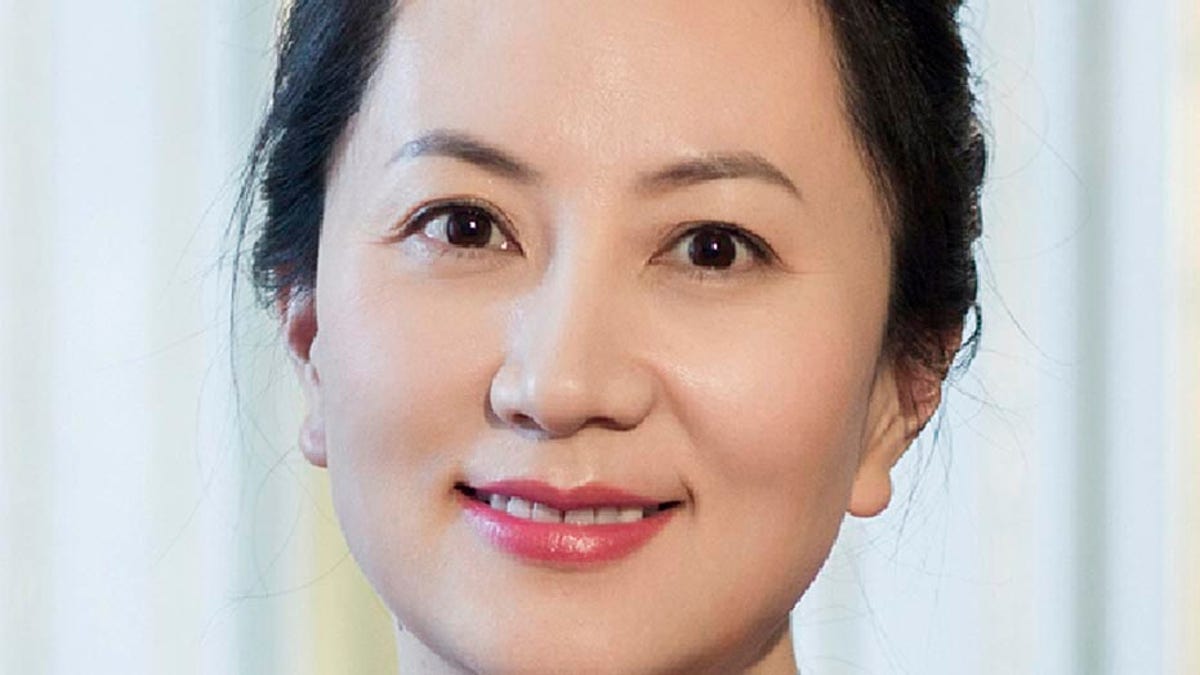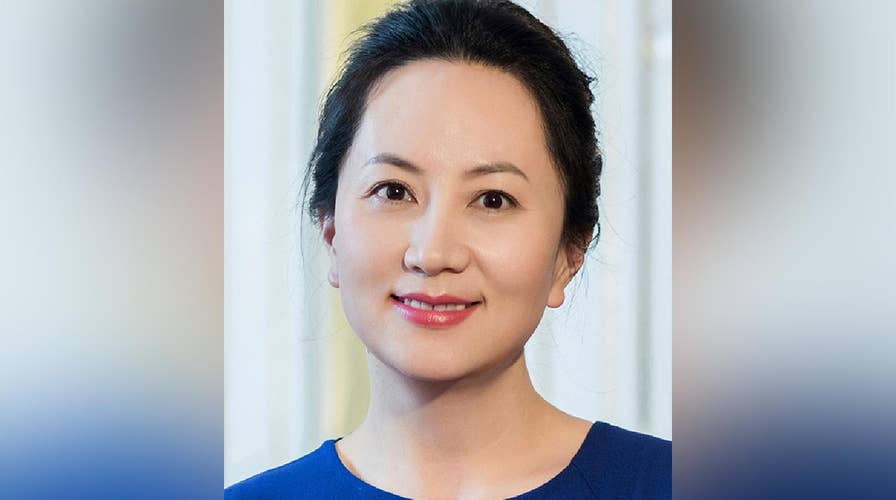Huawei CFO's arrest renews US-China trade fears
Dow futures slide after the arrest of Huawei CFO Meng Wanzhou in Canada; Doug McKelway reports from the White House.
The United States has asked Canada to extradite a top Chinese tech executive who's accused of Iran sanctions violations – but that seemingly straightforward request could end up spawning a set of complications that prevent Meng Wanzhou from ever setting foot on American soil.
Wanzhou, the chief financial officer of Huawei Technologies and the daughter of the company's founder, is set to appear at a bail hearing Friday. She was taken into custody last weekend while transferring flights in Vancouver, adding a new layer to the already-tense diplomatic standoff between China and the U.S.
Beijing has called the arrest a human rights violation and demanded the immediate release of the 46-year-old tech heavyweight.
If Meng is granted bail Friday, it will likely be in the range of several million dollars and she could be forced to give up her passport and wear electronic monitoring equipment, according to several lawyers interviews by Reuters.
If Meng chooses not to fight extradition to the U.S., she could be in America within weeks -- though it's unlikely she accepts being transferred to America. If, as expected, she battles extradition, the case could drag on for years, according to Reuters.
Richard Kurland, an immigration lawyer, said he believes Meng will likely be returned to detention if no agreement is reached on bail Friday.
“You need massive material and evidence to support detention release,” Kurland told Reuters.

In this undated image released by Huawei, Huawei's chief financial officer Meng Wanzhou is seen in a portrait photo.
Chinese foreign ministry spokesman Geng Shuang on Thursday said the U.S. and Canada haven’t provided reasons for Meng's detention. However, The Wall Street Journal reported in April that U.S. authorities were investigating whether Huawei violated sanctions on Iran.
Meng’s arrest was made on behalf of the U.S. after Canadian authorities were given advance warning she would be passing through Vancouver, Prime Minister Justin Trudeau revealed Thursday in his first comments on the case.
“The appropriate authorities took the decisions in this case,” Trudeau told reporters. “We were advised by them with a few days notice that this was in the works but of course there was no engagement or involvement in the political level in this decision because we respect the independence of our judicial processes.”
Meng is the deputy chairman of the company’s board and the daughter of its founder, Ren Zhengfei, a former Chinese military engineer. Her stature in Chinese culture has been compared to American tech titans such as Steve Jobs or Mark Zuckerberg.
Huawei Technologies Ltd., the biggest global supplier of network gear used by phone and Internet companies, has previously been the target of U.S. security concerns. Under Trump and his predecessor, former President Barack Obama, Washington has pressured European countries and other allies to limit their business with Huawei, alleging the company's technology aids China's spy operations.
Meng’s arrest and detention have only amplified the already-tense state of U.S.-China relations. Though Trump and Chinese President Xi Jinping announced a temporary truce in a tariffs war -- with Trump agreeing to suspend U.S. tariff hikes for a period -- a more permanent resolution is nowhere in sight. Trump and Xi have dug in on their respective positions and have mostly been waiting for the other party to blink. Neither has.
Fox News’ Katherine Lam and the Associated Press contributed to this report.





















